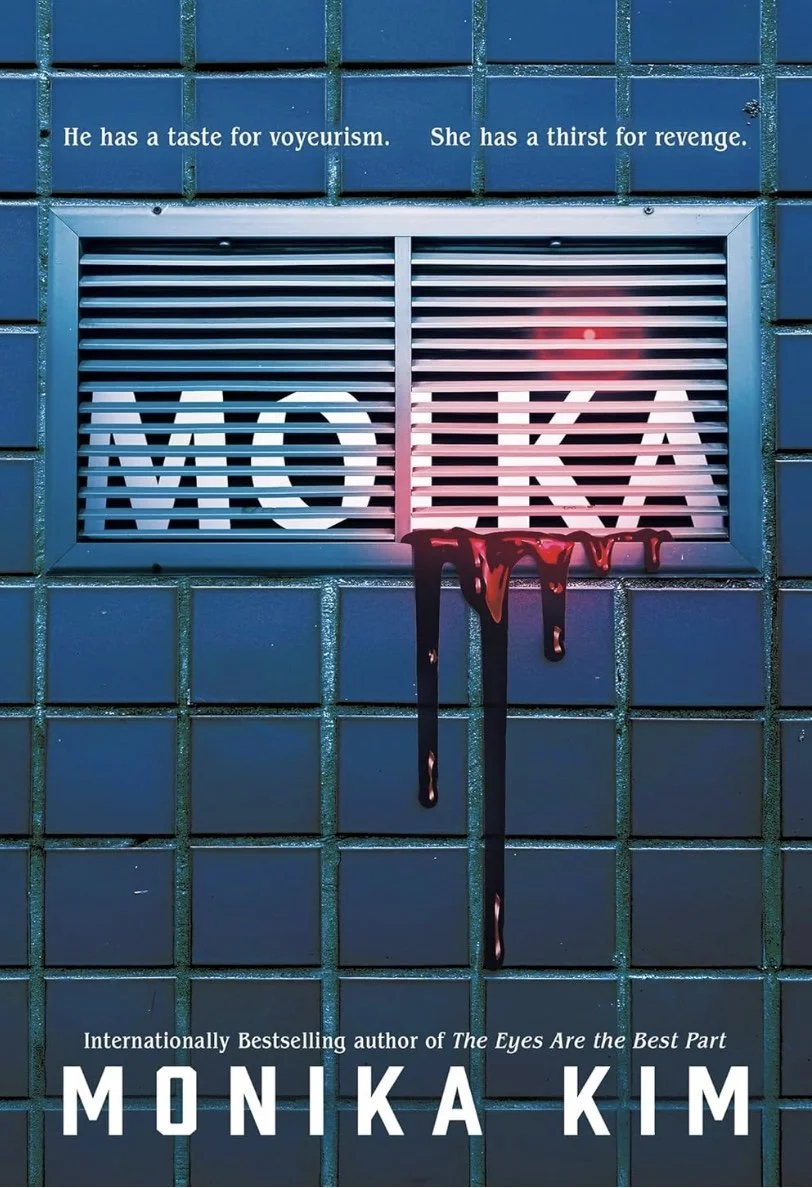Molka
by Monika Kim
ARC Review
Publisher: Erewhon Books | Kensington Publishing Corp.
Release Date: April 28, 2026
When you know the horror on the page isn’t just fiction, when you’ve seen it reflected in headlines, whispered stories, and real women’s lives, the rage hits differently.
Molka is sickening and real, and isn’t a story you can read comfortably. The cameras, the leaks, the humiliation, yes, but also the power that shields the men who do these things. The men who come from money, whose fathers call it “boys being boys.” The men who drug, record, and share, and then go home untouched.
Dahye’s story shows what happens when that world collapses around one woman. She thinks she’s in love. She thinks she’s safe. Instead she becomes another body to be used and broadcast. The betrayal is complete and public, and when it finally breaks her, she turns the shame back on the people who created it. Her reckoning is brutal, and the aftermath impossible to look away from. It’s about what happens when society refuses to protect you and then dares to judge you for defending yourself.
Junyoung disgusted me. He’s the other kind of predator this book exposes: the one hiding in plain sight, the one raised to believe women exist to be watched and controlled. His violence toward his mother, his obsession with Dahye, his belief that he can use her pain for his own pleasure, it all comes from the same place. The same rot.
Kim writes it without moralizing. She shows how deep this sickness runs, how normalized it’s become. The phrase “boys will be boys” feels like a curse here. Because it’s not just about one monster, it’s about every man who laughs, every father who looks away, every cop who says it’s not a crime.
The horror of Molka is that everything in it has already happened somewhere. The cameras. The drugs. The silence. That’s what makes this book almost unbearable to read and exactly why it needs to exist.
For readers who want the real-world context, Flowers of Fire documents the women who lived through Korea’s molka epidemic and the protests that followed. It’s a powerful companion to this novel and gives voice to the same anger that fuels Dahye’s story.
What stays with me is that final recognition: for every woman who loses her voice, another will speak. For every one silenced, another will scream. Sometimes rage is the only language left.
Thank you to Erewhon Books / Kensington Publishing Corp. for the early read.
This post contains affiliate links. If you purchase through these links, I may earn a small commission at no additional cost to you.
Available for pre-order on Amazon and Bookshop.org.
First time on Bookshop.org? Click for discount code.
If you like this book, you may also like:
Flowers of Fire - nonfiction essays and testimonies from Korean women confronting the molka epidemic.
What Hunger by Catherine Dang — a Vietnamese American novel about rage, trauma, and survival.
Also by this author:
The Eyes Are the Best Part — a violent, smart, and wildly original exploration of female anger and body horror. Currently available on KU.
Looking for your next read?
My Asian Era is where literature meets culture, thoughtful reviews, quiet voices, and stories worth slowing down for.

